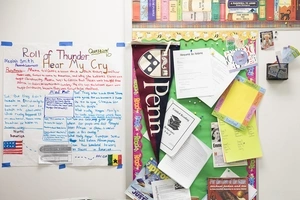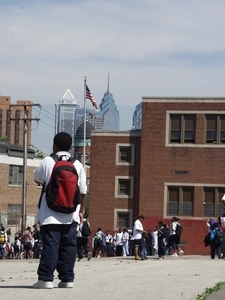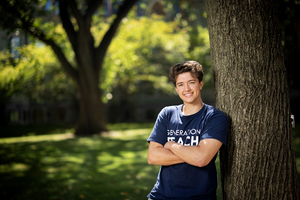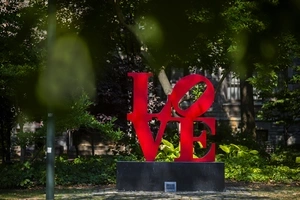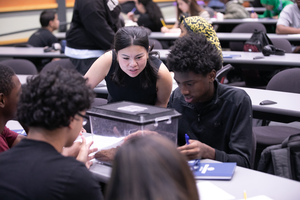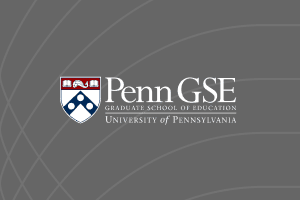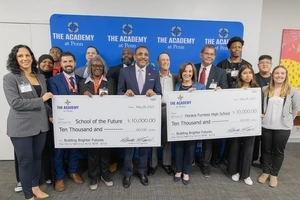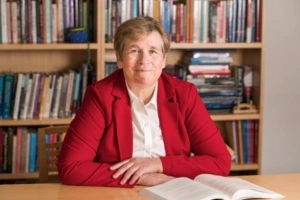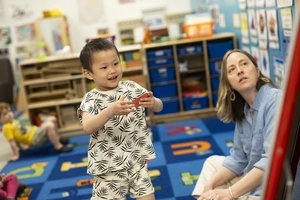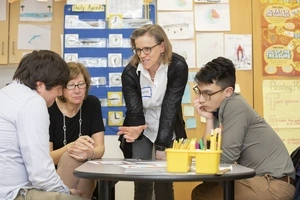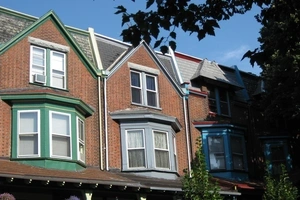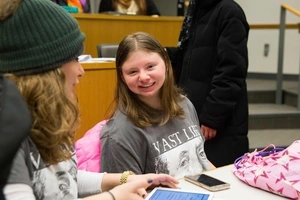Our location is an important part of our story. Not only because Philadelphia is full of opportunities to put our work into action, but because it’s the beginning of a global network of classrooms and schools and communities and other places where our students and alumni are bringing about change.
Collaboration with Philadelphia is our priority.
The Strategic Vision reflects Penn GSE’s four Strategic Priorities—the school’s programmatic areas of focus for the next decade.
Office of School and Community Engagement
The Office of School and Community Engagement (OSCE) at Penn GSE fosters connections between Philadelphia students, families, educators, school leaders, and community organizations with the resources and expertise of Penn’s Graduate School of Education. Through a partnership model that prioritizes equity, social justice, and the needs of traditionally underserved groups, the OSCE enhances educational, professional, and social-emotional outcomes for all members of Philadelphia’s school communities.
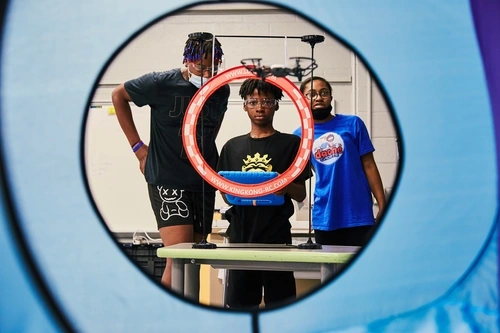
By leveraging the research and knowledge of GSE faculty and staff, the OSCE promotes access to high-quality teaching and leadership, working across institutional boundaries with schools, the School District of Philadelphia, and other universities. Its projects span program and practitioner support, direct services for students, and network and systems-level engagement, all aimed at driving meaningful, lasting impact on urban education.
Philadelphia Impact
-
382 Activities in Philadelphia schools
-
240 School partners throughout the region
-
$100 million Amount Penn pledged to Philadelphia public schools to remediate environmental hazards
Penn GSE in Philadelphia
Related News
Featured Research
Penn Early Childhood and Family Research Center
The Penn Early Childhood and Family Research Center aims to advance the use of science in a context of public trust to address problems affecting the well-being of young children and families facing systemic injustice and disadvantage.
Collaboratory for Teacher Education
The Collaboratory for Teacher Education at Penn GSE is a laboratory for the design, implementation, and study of experimental approaches to teacher education.
PEDAL: Practical English for Daily Living
Practical English for Daily Living (PEDAL) offers free English as a Second Language classes taught by students in the TESOL, M.S.Ed. program. It provides courses for family members of staff, students, professors, scholars, and post-docs at Penn, as well as Community courses for West Philadelphians.
West Philadelphia Collaborative History
West Philadelphia Collaborative History is a website with resources on the history of 20th- and 21st-century West Philadelphia, along with a series of programs to encourage community collaboration and to support educators seeking to use local history in the classroom.
VAST LIFE @ Penn GSE
A program through Penn GSE graduate students that is designed to provide students ages 14-21 the opportunity to have community-based experiences, transitional assessments and lessons, and cultural events in the city of Philadelphia.
